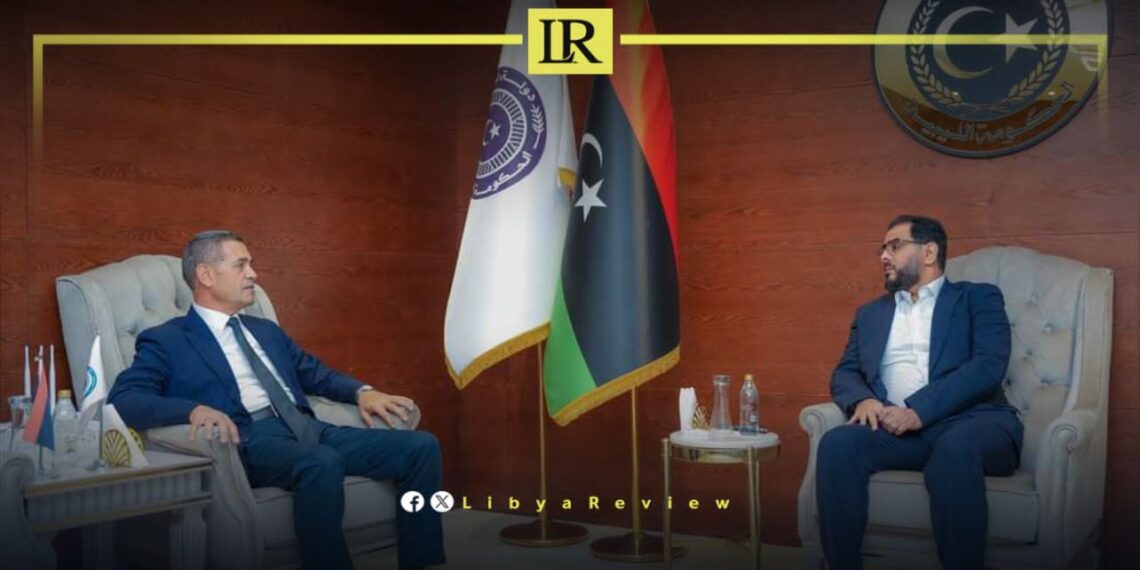On Tuesday, Libyan Prime Minister of the Parliament-designate government Osama Hammad received Emad Al-Sayeh, the head of the High National Election Commission (HNEC), in Benghazi.
The meeting, which was also attended by Cabinet Secretary-General Mustafa Al-Mismari, focused on how the government can support the HNEC in fulfilling its duties and progressing towards elections.
The HNEC head briefed the Prime Minister on the commission’s preparations to commence municipal council elections across the country. This effort is being coordinated with the Ministry of Local Governance and the targeted municipalities for the upcoming period.
Hammad expressed his full support for the HNEC’s work and reaffirmed the government’s commitment to ongoing coordination and collaboration.
He emphasised the importance of the commission’s role in meeting the aspirations of the Libyan people by achieving presidential and parliamentary elections.
Libya has been in chaos since a NATO-backed uprising toppled longtime leader Muammar Gaddafi in 2011. The county has for years been split between rival administrations.
Libya’s economy, heavily reliant on oil, has suffered due to the ongoing conflict. The instability has led to fluctuations in oil production and prices, impacting the global oil market and Libya’s economy.
The conflict has led to a significant humanitarian crisis in Libya, with thousands of people killed, and many more displaced. Migrants and refugees using Libya as a transit point to Europe have also faced dire conditions.
The planned elections for December 2021 were delayed due to disagreements over election laws and the eligibility of certain candidates. This delay has raised concerns about the feasibility of a peaceful political transition.
Despite the ceasefire, security remains a significant concern with sporadic fighting and the presence of mercenaries and foreign fighters. The unification of the military and the removal of foreign forces are crucial challenges.


